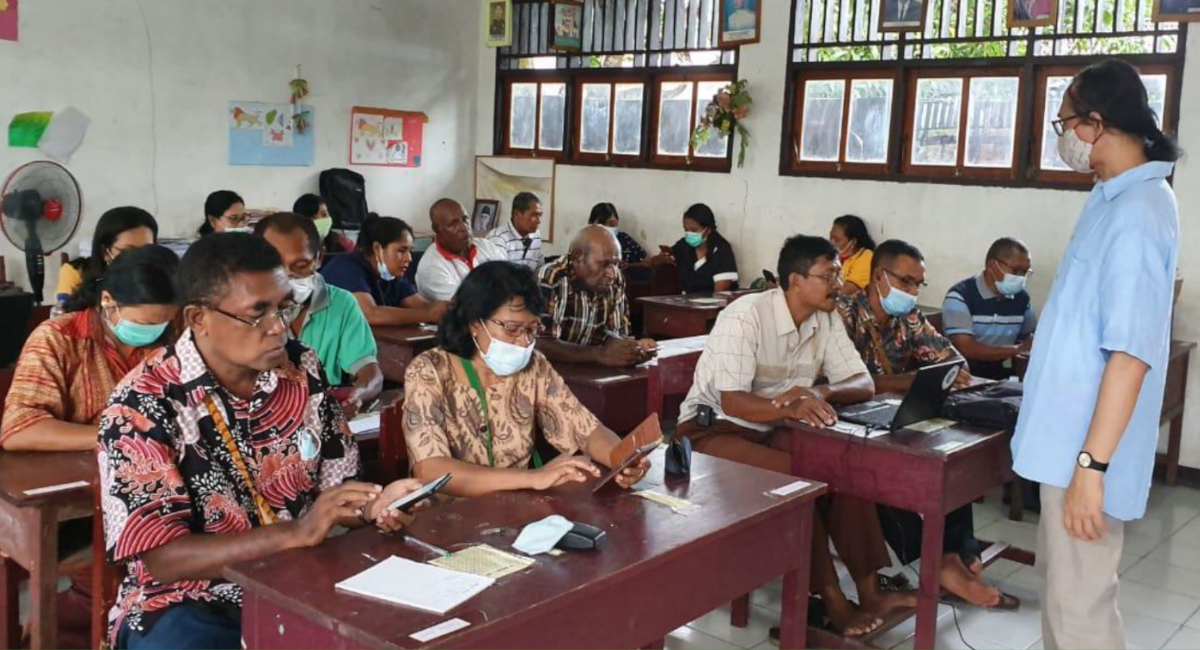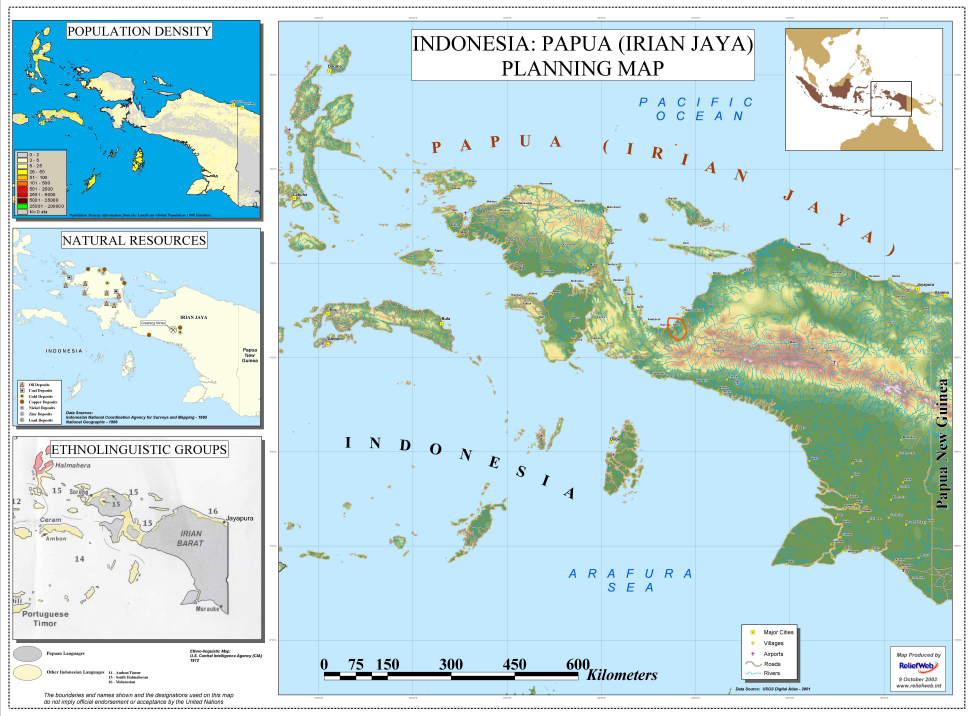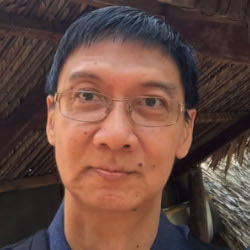
For all the damage it has done, the pandemic has also spurred the creation of many innovations and ideas. Who would have thought that from Papua, which is long behind in many aspects of life, could come an initiative that would attract the attention of people in the field of education?
In March 2020, Fr Yohanes Sudrijanta (Sudri) SJ, the superior of the Jesuit community in Papua, the largest and easternmost province of Indonesia, found himself stuck in Jakarta. He couldn’t return to Nabire due to travel restrictions. While in confinement, he began to think of what he could do to pass the time. He and Sukhri, a Muslim volunteer whom he had worked with during their time at Jesuit Refugee Service in Aceh, thought of developing a “people’s school”, which would enable children to keep learning even in the pandemic and without internet access. They started to work on a digital library, which they named, Pustaka (Library) Neo-EduTech or PNE 4.0.
They found support in the form of funds, facilities, and ideas from leaders of the Jesuit School Alumni Association (AAJI), alumni of Le Cocq College, friends from Papua who were in Jakarta, and several other education activists. Together with them, the PNE team discussed and formulated a vision, and looked for strategies to implement the project.
Finally, after six months of hard work, they were able to develop a Wi-Fi device that did not need an internet connection to distribute as many as 50,000 books and videos to school children from pre-elementary to senior high school, as well as general knowledge materials. Other schools began to take interest in the device. Strada Foundation felt they needed it in their schools located on the outskirts of Jakarta and Tangerang. So, they ordered 10 units. The Jesuit mission in East Kalimantan also wanted three units, and Daya Dharma Institute ordered eight units.

Seeing PNE 4.0’s vision to provide educational WI-FI services in areas without internet access, PT Primacom, a leading communication services provider in Indonesia, became very impressed that they invested in a VSAT satellite technology, and data compression services to improve PNE’s satellite communication. In the six months since PNE 4.0 was launched in Papua, four VSAT points have been installed, namely in Nabire, Dogiyai, Deiyai, and Paniai. As many as 110 units of PNE 4.0 Version 1 have been distributed to around 100 schools in nine districts (Serui, Nabire, Deiyai, Dogiyai, Paniai, Intan Jaya, Manokwari, Sorong, Fakfak). The collaboration between PNE 4.0 and PT Primacom, and the involvement of the Regent of Nabire, Education Office, and school principals have made a world of difference to the education of children in rural and remote villages in Papua.
In July, development of PNE 4.0 Version 2 was completed to support the creation of digital schools. Version 2 has been designed not only to disseminate digital materials without the internet, but to facilitate digital-based learning activities. Two high schools in Nabire, with more than 300 students each, are already using PNE 4.0 Version 2. An unexpected upside to the technology is that the students and teachers have developed a consciousness to “save paper”.
When they started this project, the PNE team was faced with the difficulty of Papua’s size and terrain, and the fact that Papuan children have the lowest reading literacy rate in Indonesia. The latter is attributable to many factors, foremost would be the scarcity of teachers, both in quantity and quality, as well as the lack of textbooks, besides the absence of an internet connection in many remote areas. These challenges did not dampen the spirit of the team because they knew this technology would not only be relevant in Papua, but also in other places with a similar reality. PNE 4.0 can help address these problems.

Still, there are those who question the point of a digital library when children do not have an interest in reading. According to Sugata Mitra, an Indian researcher and educator, education is a process that proceeds by itself as long as the child is motivated and the right technology is available. In his experiment, Sugata mounted an outdated desktop with sufficient internet access into an outer wall in several rural areas in India. Without the help of teachers or adults, the children taught themselves how to use the desktop. Slowly their reading and thinking skills developed. This shows that children do not have to be able to read first to be able to use digital devices. On the contrary, digital technology can actually accelerate reading literacy.
The PNE 4.0 educational Wi-Fi platform is easy to operate using a plug-and-play hardware that requires no installation. Each unit of PNE Version 1 can accommodate 10 to 15 users at once. They can stream, download, upload, and chat. This intranet system is very useful for schools that have difficulty connecting to the internet. Children or their parents/guardians can come to the school to download the required materials for free. It is very common to find that children in Papua do not have textbooks. With PNE 4.0, they can have an abundance of textbooks and learning videos. All the materials available on the platform are from open sources, so there are no copyright infringement issues.
When the Covid-19 pandemic ends, it is hoped that this digital school will continue because the world in the future cannot be digitally divided. Schools from now on must equip their students with skills in digital technologies. Raden Mas Panji Sosrokartono, the brother of famous Indonesian activist RA Kartini, once said, “The body may be confined, but the mind must be free.” The body may be confined by the pandemic, but creativity must be free to roam.
 Fr Dismas Tulolo SJ teaches Indonesian language at Adi Luhur Senior High School in Nabire, Papua, Indonesia.
Fr Dismas Tulolo SJ teaches Indonesian language at Adi Luhur Senior High School in Nabire, Papua, Indonesia.

